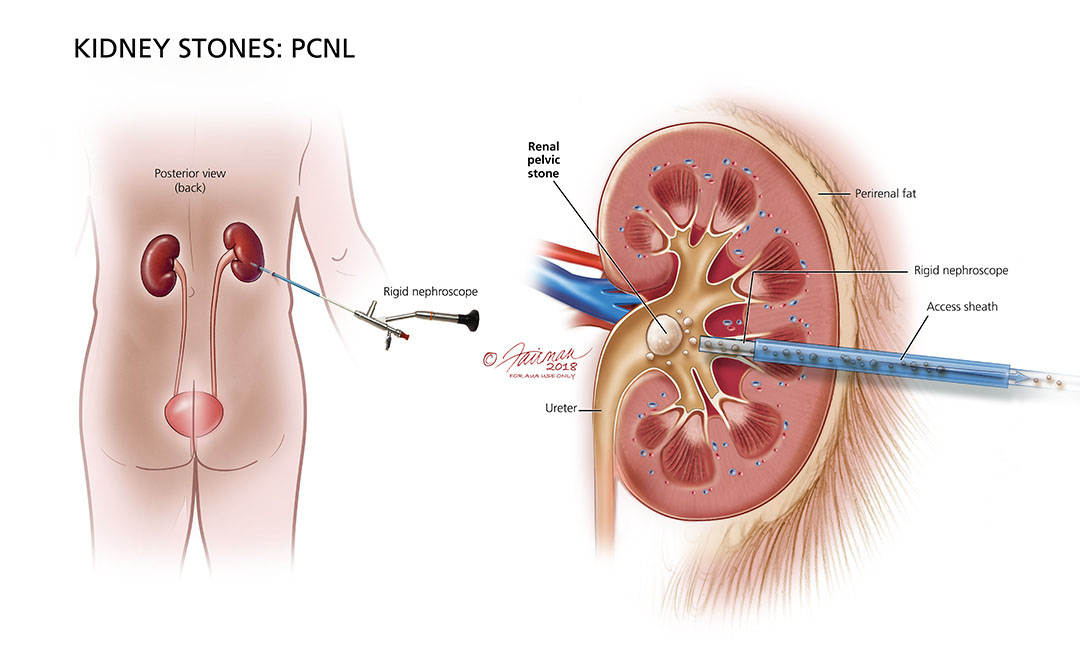Know the Kidney Stones Treatment and Prevention

A kidney stone is a crystal that builds up in the kidneys and blocks urine flow, causing terrible pain. This experience can be one of the most excruciating things someone has ever gone through. This article discusses recognizing these painful crystals and what you can do to prevent them from developing timely with a health app.
How is Kidney Stone Treated?
Based on the size of the kidney stone and health condition, the urologist in Delhi may suggest the following treatment:
Drinking Water:
Drinking lots of water is recommended for people who have kidney stones. This will help reduce pain and prevent future stones from developing in your kidneys.
It can also flush out debris that may be present due to the passing of the stone through the urinary tract or because it was broken down into small pieces by urine that might remain inside the body.
However, people who are on diuretic medications should avoid having excess water. These types of drugs increase the amount of fluid that is lost in the urine, and drinking too much water will cause problems.
Pain Relievers
It’s not uncommon for stones to cause pain. Some people even report that their symptoms are worse at night. Any time accessibility of a health app proves immensely helpful. Most doctors recommend the use of medications during this time, but there are some precautions you should take before using them. If your kidney stone is causing severe pain and bleeding has occurred, it may be best to hold off on taking any painkillers. However, suppose your only symptom is mild to moderate pain and no signs of bleeding. In that case, you can try taking medication like acetaminophen (Tylenol), ibuprofen (Advil or Motrin), or naproxen sodium (Aleve).
Medical Therapy
Medical therapy for kidney stones is recommended when pain, infection, or nausea associated with the stone does not improve within 24 hours. This treatment involves taking a medication that will help dissolve and break up your kidney stones into small pieces to pass through the urinary system. However, some medical problems prevent you from using these medications, such as chronic kidney disease, urinary tract obstruction, or uncontrolled high blood pressure.
Surgery
There are two main ways that kidney stones can be removed: surgery and non-surgical treatments. Surgery is often the first choice for people with large or multiple renal calculi. Still, it should only be used as a last resort because of the high risks involved, including anesthetic complications such as pneumonia, cardiac problems, and even death. A trained surgeon should always carry out the surgery.
Parathyroid gland surgery
The parathyroid gland is a small, potato-shaped organ located on the thyroid gland. It releases hormones that are necessary for bone health and good calcium levels in the body. If you have an overactive or underactive parathyroid gland, it can lead to Hyperparathyroidism, which leads to calcium deposits in the bones that can lead to kidney stones. If you have an overactive parathyroid gland, it will cause your body to absorb too much of your body’s Calcium; if this continues for long periods, it could potentially affect your kidneys, causing pain and damage.
How to Prevent Kidney Stones?
Preventing kidney stones is all about maintaining a healthy lifestyle. Kidney stone formation can be reduced by following some simple steps:
- Drinking lots of water. Water is the best liquid for kidneys which helps to flush out waste materials present in the kidney and prevents the formation of stones.
- Avoiding Calcium containing food like cheese, butter, etc. This kind of food increases the risk factor for stone formation by increasing calcium levels in the blood.
- Eating more fresh fruits and vegetables. It will help to reduce the risk factor because of the fiber content in them.
- Get regular medical check-ups from your doctor at least once a year and keep track of any changes noticed by you or reported by your family members regarding kidney health.
- Consume cranberry juice which is currently considered the best home remedy for treating kidney stones because it contains proanthocyanidins that prevent the formation of kidney stones and reduce pain caused due to stone spotting in kidneys.
Conclusion
The biggest problem with kidney stones is that they could lead to a complete blockage in the urinary tract. When this happens, the person will experience searing pain and nausea, which can be life-threatening if not treated immediately. If you are not able to find the best urologist in Delhi timely, then permanent damage to kidneys may occur due to uncontrolled infection or even renal failure.




